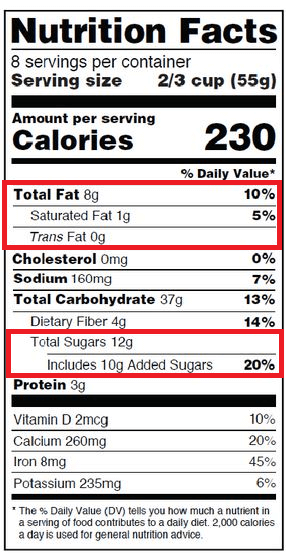A 6-minute read.
We lose weight by eating less, right…?
Dopefam… We’re happy to report, that is NOT the case. 🙂 There are ways you can eat more food and lose weight! (Thank you Calorie Density!) As strange as it may sound – hear us out…
Today we answer questions like: What is calorie-dense food? Why is it important for weight loss? And how can you eat more food and still lose weight?
The caloric density of food is a key element to weight loss. Without a basic understanding of macro-nutrients and the calorie density of common foods, it’s easy to get confused, frustrated, and lost in the sauce when starting a weight loss journey. Can have you feeling like Diddy…

But today, I’m drawing on over 8 years of experience as a bodybuilder and fitness coach (Click here to read more about my background). I’ve not only seen but experienced, firsthand, the confusion around nutrition and how we often make weight loss more difficult than needed.


To simplify the concept, I have created an infographic!
This diagram breaks down the caloric density of the three macro-nutrients: Carbs, Proteins, and Fats, and how that applies to weight loss. Plus, helps you gain greater clarity with examples of how caloric density plays out in our everyday lives and the foods we choose to eat.
Read on to learn the role calorie density plays in weight loss and how you can lose weight by making informed food choices.
What This Infographic Means for Your Weight Loss
Knowing which foods are calorie-dense empowers you to make smarter meal choices. These choices help align you with your weight loss goals. Choosing foods with lower calorie density allows you to enjoy larger, more satisfying portions while still meeting your caloric goals for weight loss. Lunch comparisons 2 and 3 really show this:
For instance, you could enjoy THREE different Meals of Dopeness for lunch and still consume fewer calories than you would with a single Big Mac Meal Combo. This example shows that by selecting meals with the right ingredients and preparation methods, you can eat two to three times the volume of food compared to a more standard diet—without derailing your weight loss efforts.
Being intentional about the right meals not only leaves you feeling more satisfied but also ensures you receive better nutrition, supporting sustained weight loss. Remember these examples when planning your meals, and see how choosing wisely can make dieting so much easier.
Find my infographic helpful?
Consider booking a 30-minute nutrition consultation with me!
First, we’ll discuss your current eating habits. I use that information to uncover the roadblocks to your ideal nutrition. Then, we’ll talk about changes we can implement today, to begin seeing results. Plus, we will create a plan that fits you and your lifestyle.
Our goal is sustainable results!
Discover how tailor-made nutrition planning can elevate your energy, shed unwanted pounds, and enhance your overall wellness.
This is your sign to embark on your Journey to Dopeness! Schedule your 30-minute consultation with me today and take the first step towards a better you. (Use code ‘Magic’ for an exclusive 50% off, just for my blog reading homies!)

Should We Avoid Fats to Lose Weight? (Since they have the highest calorie density)
We should NOT totally avoid fats.
Despite being the most calorie-dense macronutrients, fats are critical for a well-functioning brain and body. They’re pivotal for energy, cell growth, nutrient absorption, and hormone production. Learn more about the importance of dietary fats here.
A mindful approach to nutrient density and moderation maximizes meal benefits. Healthy fats, like avocados, nuts, and olive oil, not only support heart health, regulate cholesterol and blood sugar but also mitigate inflammation. Discover the benefits of eating healthy fats here.
Processed and Fast Food
Often laden with added sugars and fats, processed foods and fast foods can contain higher amounts of calories. This is true especially when compared to raw or minimally processed whole foods like eggs, meats, fruits, and vegetables.
The amount of added sugars and fats is often hard to determine through looks alone. Instead, reading the nutrition label can give you critical information about what you’re truly consuming.

For the latest on reading nutrition labels, learn more here.
How to Apply the Principles of Calorie-Dense Food:
Prepare Home Cooked Meals:
Home cooking is a rewarding way to deepen your understanding of nutrition and commit to a healthy diet. It allows you full control over ingredients and portion sizes, ensuring meals are aligned with your dietary goals.
However, a word of caution: Home cooking can require a lot of time and effort:
- Researching recipes
- Grocery shopping
- Ingredient Prep
- Cooking
- Meal assembly
- Cleanup
The process can be time-consuming and daunting for many.
But for those willing to take the plunge, it can be worth it. Not only does cooking at home enhance your cooking skills, but it also deepens your connection to the food you eat, making healthy living a more immersive and enjoyable experience.
Need Another Option? Consider a Professional Meal Prep Service:
For those with limited time or interest in cooking, professional meal prep services offer a convenient alternative.
Services like Meals of Dopeness (MOD) provide the perfect solution for enjoying nutritious, low-calorie meals without sacrificing flavor or navigating the complex world of meal planning and preparation.
Our expertise ensures each meal is balanced, delicious, and tailored to support your weight loss journey, offering peace of mind and freeing up your time for your true passions… all the things that make you DOPE!
Interested in exploring how Meals of Dopeness can transform your dietary habits? Check out our Weekly Special and meal options designed to meet your nutritional needs without the extra calories
Stay DOPE! <3
Relevant Readings

Leave a Reply